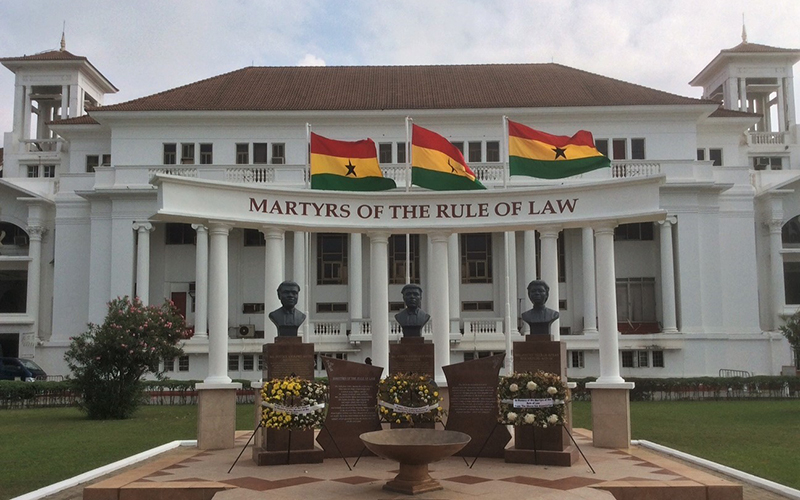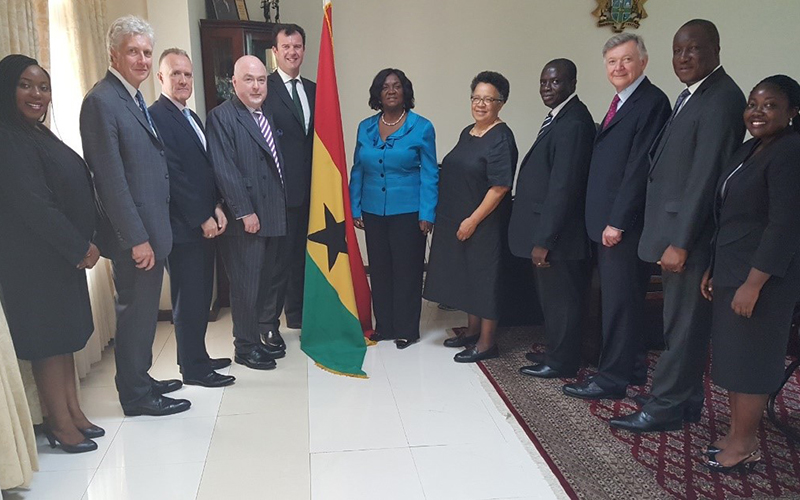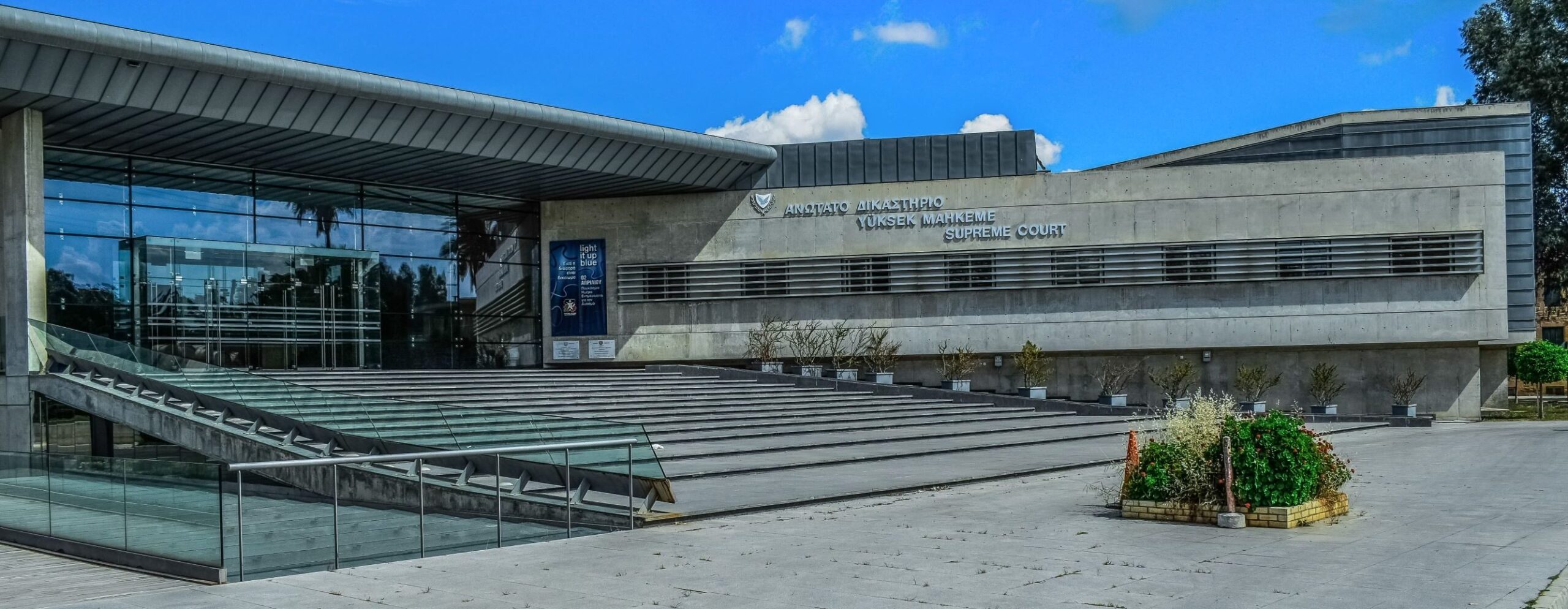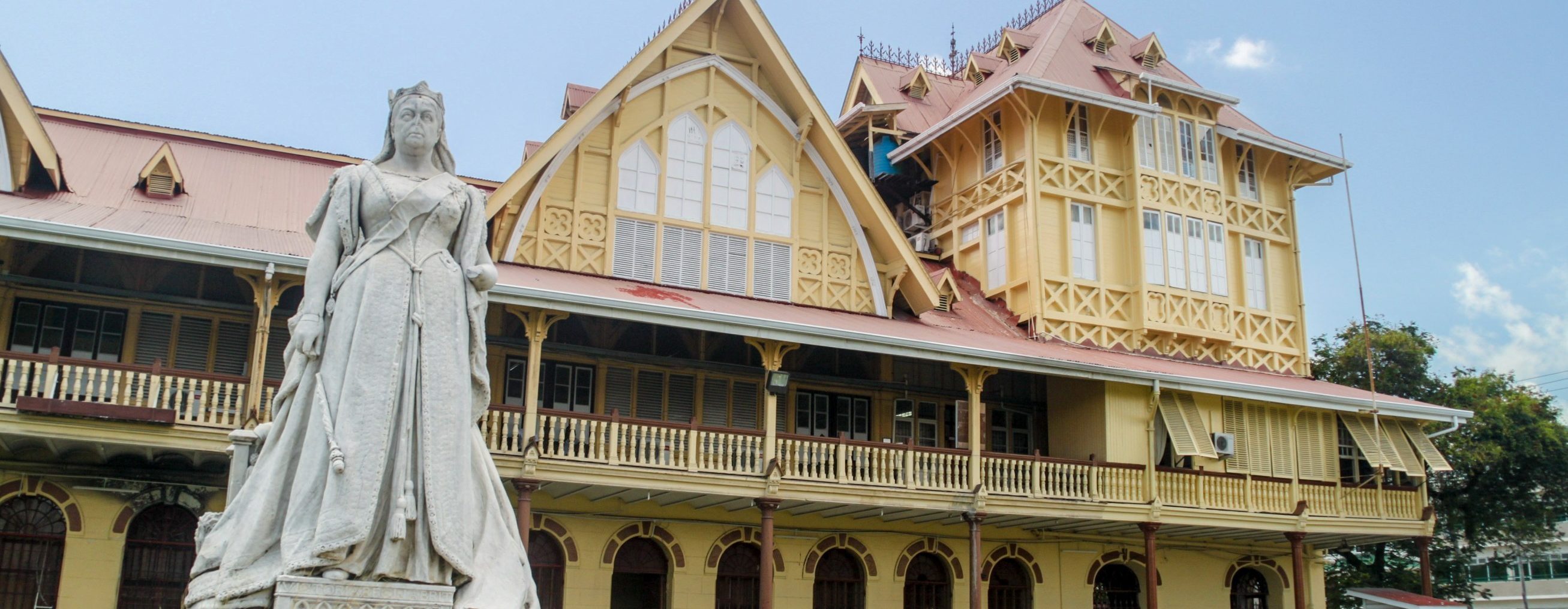Ghana 2016
by Stephen Murch
Introduction
A party of six visited Ghana on behalf of the College: Dame Linda Dobbs, Tom Kark QC, Paul Garlick QC, Shaun Smith QC, Iain Morley QC and I. I acted as lead trainer. We were the guests of the Ghana Bar Association (‘GBA’). Each of the trainers has contributed to this report.
This was the second successive year in which training had been carried out in Ghana. Last year, a party of six trained 35 practitioners using the case of The Republic v Jonah. This is the case involving an altercation in a bar which has been adapted for use in a number of jurisdictions.
The Programme
This year, with the considerable assistance of the GBA, it was possible to develop a slightly more ambitious programme of training, with both a Standard Course, an Advanced Course and a Teacher Training Course being run at the same time. The Standard Course used the same exercise as last year, while the Advanced Course used a civil case which had been prepared by the Ghana Bar. A total of 27 took the Standard Course, divided among four tutor groups and nine took the Advanced Court in one group, with Iain Morley QC and I teaching that course. Five took the Teacher Training Course.
In common with last year, an ethics session was run, using problems which had been prepared by the Ghana Bar in the light of issues which the Lady Chief Justice of Ghana, Justice Georgina Wood, had specifically asked to be covered. Dame Linda Dobbs also introduced some of the questions which she had written for Sierra Leone in 2015. They were given to the participants in the teaching group itself, to permit a more spontaneousresponse than might otherwise have been the case. The ethics sessions were taught simultaneously in two groups with a mix of participants from each of the Standard and Advanced Courses so as to provide a balance of experience.
While the ethics sessions were taking place, I ran a short Teacher Training Course for the five participants who were not enrolled on either the Standard or the Advanced Course.
General Observations
The tutors agreed that the participants were all very keen to develop their skills. With only very limited exceptions, the standard of preparation was very high. Even in those very few cases where it seemed to have been less focussed on the first day, it was clear that steps were taken during lunchtime and overnight to work on the papers.
Even though there was scope for improvement, the standard of advocacy was generally high. Participants were generally less confident in the cross examination exercises. It is not the practice in Ghana to give closing submissions. This was perhaps reflected in the overall standard of performance, although it was clear that much thought had been given to how to do it. Paul Garlick QC had given a talk on narrative advocacy during the afternoon before that exercise was carried out and the points he made were taken on board by a good number of participants. Overall, the tutors observed a marked improvement in performances on replay. The delayed replay method was used throughout the programme and so the temptation simply to repeat the tutors’ demonstrations was avoided. There was evidence of reflection and a determination to improve performances.

Participants were told on the first day which party they would each represent throughout the course. The consensus among the trainers is that this worked well. Participants should be encouraged to look at the papers from all angles, before they are told which specific role they will have. It is important of course that papers are sent out in good time.
Although I did not witness the ethics sessions, I understand that they were lively and that standards were seen to be high with a clear awareness of the issues which were at stake.
Review of Materials
As mentioned above, the papers for the Advanced Course were prepared by the GBA. Although the Advocacy Training Council had provided case materials in the past, this year the College decided to invite our hosts to prepare the papers for this course so that it could meet the specific needs of the participants. In the run-up to our visit I undertook a series of reviews of these materials with members of the GBA. Having seen them in use, I share the view of Iain Morley QC that if this case were to be used again, it would benefit from the inclusion of the documents to which reference was made. Although each of them was described in the pleadings and witness statements and neither party took a point as to their authenticity (the issue being whether they were binding between the parties as a matter of law or on the facts), the exercise would have worked better if the documents had actually been included in the papers. Aside from making the case more realistic, it would have provided scope for the handling of documents.
There was no obvious practical difficulty however in running both a Standard and Advanced Course at the same. It is likely something which could be carried out in other jurisdictions. Inviting the host to prepare the papers not only brings obvious benefits for the College in saving time but, more importantly, ensures that the exercise has credibility among its participants through reflecting the kind of matter and paperwork which they are likely to use in real life.
The Teacher Training Course took the form of a short discussion of the training method followed by each of the participants practising it upon one another and me. I then performed an examination in chief making a number of errors which were suitable for video review. The various participants were then asked to identify one point and carry out a review of it. Unfortunately, earlier in the week, the first day of the training course had been declared a public holiday to mark Eid. It was agreed therefore that the working day and therefore this session would finish about an hour earlier than had been planned. That said, even during this shorter course, the participants appeared to grasp the basics of the teaching method. For the remainder of the course they were each assigned to a teaching group and carried out video reviews of its participants. Iain Morley QC acted as rover during these exercises and was able to give further assistance on the conduct of video reviews. He reports that he saw an improvement in the standard of reviews. They were also well-received by the participants.
The use of video review did not however run quite as planned. Each group was provided with a camera and about three operators. The cost of this was met by the GBA. Unfortunately, the cameras were the only means of replaying the videos. Use was not made of memory sticks to enable each participant to proceed straight from the teaching room to the video review room for an immediate further review. The result of this is that it was not possible to conduct ‘live’ teaching sessions and video reviews at the same time. The course was therefore adapted so that in each group all of the examinations in chief were recorded but the cross examination sessions were not. Instead, after each participant had conducted a cross examination, he or she proceeded to the video review room for a critique of the earlier examination in chief exercise. Although not ideal, it seemed to be the only way in the circumstances to enable video reviews to be carried out at all. In future it is suggested that one of two options be pursued. Either each participant has the performance recorded onto an iPhone or iPad which is then taken into the video review room or cameras and televisions are used which are capable of operating with memory sticks so that both sessions can run at the same time. Nearly every participant appeared to have an iPhone or iPad so the first option could very likely work and they would all have a record of their performances. Essentially, this is a matter for the GBA. The cameras which were used were far more professional than those which are generally used in this jurisdiction. They likely came at a considerable cost. It is probably possible to hire less sophisticated equipment which is able to make use of memory sticks.
Feedback on the Course
Thirty participants completed feedback forms. I am grateful to Phoebe Makin for her analysis of the answers given. The impression they create is one of enthusiasm for the method of teaching. The suggestions for improvement seem to focus upon the papers being provided further in advance and for more time to be made available for the practical group sessions. Taking those points in turn, the first suggestion could well be a result of many people signing up for the course at relatively short notice. The training materials were agreed with the Ghana Bar 4 weeks before the course started. As to the second point, a balance needs to be struck between the plenary sessions and the group sessions. Each of the talks in plenary sessions was of an appropriate length for the subject matter involved. Given that each participant was able to complete each of the exercises, it is not clear to what use the additional time in group sessions would be put. It may be however that consideration should be given either to lengthening the working day or making the Friday session into a full day, rather than one which finishes at lunchtime. To the extent that there is felt to be a need it, for this would enable the practical sessions to be longer.
The Social Side
Both members of the GBA and the Lady Chief Justice were very generous with their time throughout our visit. I have already written to the GBA and the Lady Chief Justice to express our thanks for everything they did. On each of the nights when training was carried out, dinner was laid on for us. The first night was informal with members of the GBA and a few of the participants. The second night was a more formal affair with the Lady Chief Justice hosting a dinner attended by a number of judges from the Supreme Court, the Court of Appeal and the High Court along with members of the GBA. Short speeches were made and gifts presented to each of the trainers. During the course of my short speech, I took the liberty of saying that although we had carried out the Teacher Training Course with a view to the GBA running its own programmes, the College would be happy to give such support as was requested from us. The final night took the form of a visit to a live jazz performance in a local bar attended by those trainers who were not flying back to London that evening.

On the morning of the second day, we paid a courtesy call upon the Lady Chief Justice in her chambers when there was an introduction of each of the trainers and a short discussion of the programme. Both during this visit and the dinner, the Lady Chief Justice expressed great interest in our visit and the method of training. She also thanked us very warmly for travelling to Ghana. It being difficult to predict travel times in Accra’s very heavy traffic, she was kind enough to give us the use of one of her outriders to ensure that we were able to arrive back at the hotel to continue with the second day of training.
On the morning of the third day, members of the GBA showed us around the Supreme Court and Court of Appeal Building. We were then introduced to Justice Georgina Datsa at the new court building which was completed last October. She showed us around her courtroom and a number of others in which trials and applications were taking place. I have also written to her to thank her for arranging her diary so that she could show us around courts which were already sitting.
During the weekend immediately following the training, trips to the Elmina Slave Castle and the River Volta were arranged for those tutors who had not returned to London on the Friday evening flight. Once again, members of the GBA were extremely generous in giving their time and arranging for very enjoyable lunches.
Conclusion
This was both a very enjoyable and successful visit. A strong and supportive link is being formed between the College of Advocacy on the one hand and the GBA and the Lady Chief Justice on the other. Although she is due to retire next year, we met with support from all of the judges with whom we met and I would hope that her successor can readily be convinced of the benefits of our association with Ghana’s bar. Work is already underway by Dame Linda Dobbs for training of the judiciary next year in Accra, with an application for the necessary funding having been made to the Department for International Development.


